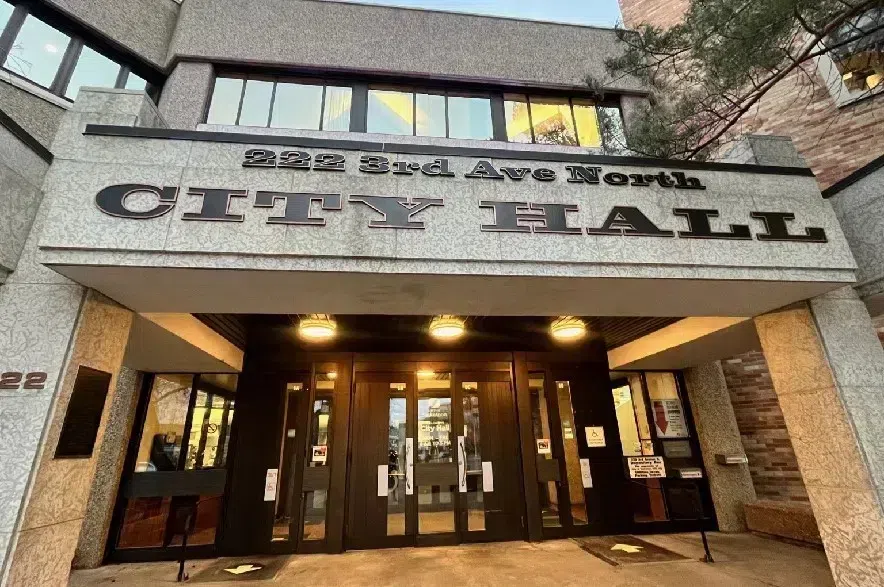The CEO of the Greater Saskatoon Chamber of Commerce hopes options presented to city councilors to lower property taxes in the next two-year budget will be considered and applied during budget deliberations this month.
Jason Aebig said his organization is in the process of reviewing all of the information contained in the “substantial” set of budget documents.
Read more:
- Saskatoon’s 2026 property tax hike projected at 8.23% ahead of budget deliberations
- Saskatoon residents ‘appreciate’ quality of life their city offers: Survey
- ‘The play you dream about’: Tommy Nield’s late touchdown sends Riders to Grey Cup
“The devil is in the details. I think, at a very high level, what we’re seeing is administration has come back to council and to taxpayers with a budget that can be whittled down,” he said, noting there were items like adding dozens more civic employees and some program options that might not be crucial to city operations, and should be scrutinized as a result.
“At the end of the day, it’s ‘How much city do we want to invest in, based on what we can afford?’”
Last week, Clae Hack, Saskatoon’s chief financial officer, presented the proposed property tax increase of 8.23 per cent for 2026 and 5.95 per cent for 2027.

Jason Aebig, CEO of Saskatoon Chamber of Commerce, says an 8.23 per cent tax hike “would not fly” with the Chamber’s members. (City of Saskatoon)
While the numbers are high right now, Hack said he’s confident they can be lowered, with new budget information and scenarios to be presented to council closer to the start of budget deliberations later this month.
“This report will present over 100 options and budget levers for city council to consider to reduce the property tax requirement,” he explained during a news conference.
The options presented to council may include deferring some programs or projects to another year, or spreading them out over a longer period.
Aebig said council’s role is to explore all of the options and to act on them so that the rates that appear on tax bills over the next two years are lower than the initial projections.
“Obviously, 8.23 per cent tax rate increase is not acceptable, and would not be acceptable to the vast majority of our members,” Aebig said.
“Businesses in our community are already carrying a significant tax burden – municipally and in other spheres – and a tax increase of that magnitude would not fly.”
In a budget summary document provided to reporters, two main reasons were cited as contributing to the large proposed tax increase: inflationary pressures and the cost of a growing city.
“New neighbourhoods require transit service, street sweeping, roadway and park maintenance, garbage collection, and other essential services,” the document read.
Aebig, however, said Saskatoon can continue growing its population while still taxing residents and businesses in a responsible manner.
“Our primary interest here is a Saskatoon that is affordable for people to live here, and for businesses to create jobs here,” he said.
During Saskatoon’s last multi-year budget, in 2023, council was faced with trying to whittle down a $75 million funding gap, which ended up at $35 million. Special budget meetings were held during the summer months, a first for city council at the time.
Property taxes ultimately rose 6.04 per cent for 2024 – the largest rate hike since 2014 – and the increase was slightly adjusted to 5.84 per cent for 2025.
This time around, Hack said the goal is to try and end up somewhere around 4.9 per cent for 2026 and 2.34 per cent for 2027.
Budget deliberations will begin on Nov. 25 and are scheduled to run for three days.











